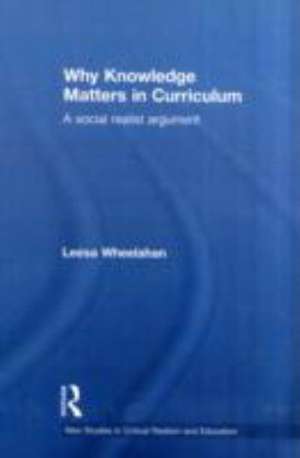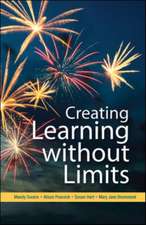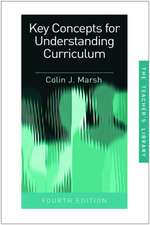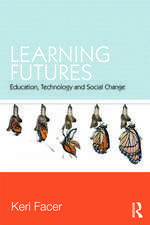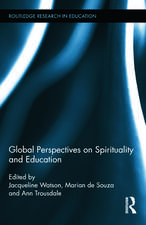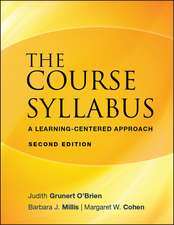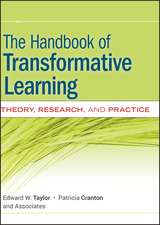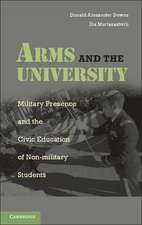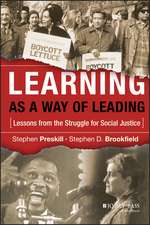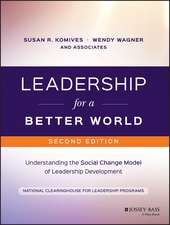Why Knowledge Matters in Curriculum: A Social Realist Argument: New Studies in Critical Realism and Education (Routledge Critical Realism)
Autor Leesa Wheelahanen Limba Engleză Paperback – 10 ian 2012
This book argues that providing students with access to knowledge should be the raison d’être of education. Its premise is that access to knowledge is an issue of social justice because society uses it to conduct its debates and controversies.
Theoretical knowledge is increasingly marginalised in curriculum in all sectors of education, particularly in competency-based training which is the dominant curriculum model in vocational education in many countries. This book uses competency-based training to explore the negative consequences that arise when knowledge is displaced in curriculum in favour of a focus on workplace relevance.
The book takes a unique approach by using the sociology of Basil Bernstein and the philosophy of critical realism as complementary modes of theorising to extend and develop social realist arguments about the role of knowledge in curriculum. Both approaches are increasingly influential in education and the social sciences and the book will be helpful for those seeking an accessible introduction to these complex subjects.
Why Knowledge Matters in Curriculum is a key reading for those interested in the sociology of education, curriculum studies, work-based learning, vocational education, higher education, adult and community education, tertiary education policy and lifelong learning more broadly.
| Toate formatele și edițiile | Preț | Express |
|---|---|---|
| Paperback (1) | 399.55 lei 6-8 săpt. | |
| Taylor & Francis – 10 ian 2012 | 399.55 lei 6-8 săpt. | |
| Hardback (1) | 1055.21 lei 6-8 săpt. | |
| Taylor & Francis – 19 mar 2010 | 1055.21 lei 6-8 săpt. |
Din seria New Studies in Critical Realism and Education (Routledge Critical Realism)
-
 Preț: 377.52 lei
Preț: 377.52 lei -
 Preț: 408.45 lei
Preț: 408.45 lei -
 Preț: 468.36 lei
Preț: 468.36 lei -
 Preț: 363.03 lei
Preț: 363.03 lei -
 Preț: 406.42 lei
Preț: 406.42 lei -
 Preț: 389.66 lei
Preț: 389.66 lei -
 Preț: 360.99 lei
Preț: 360.99 lei - 17%
 Preț: 259.98 lei
Preț: 259.98 lei
Preț: 399.55 lei
Nou
Puncte Express: 599
Preț estimativ în valută:
76.45€ • 80.03$ • 63.63£
76.45€ • 80.03$ • 63.63£
Carte tipărită la comandă
Livrare economică 31 martie-14 aprilie
Preluare comenzi: 021 569.72.76
Specificații
ISBN-13: 9780415522007
ISBN-10: 0415522005
Pagini: 208
Dimensiuni: 156 x 234 x 11 mm
Greutate: 0.06 kg
Ediția:1
Editura: Taylor & Francis
Colecția Routledge
Seria New Studies in Critical Realism and Education (Routledge Critical Realism)
Locul publicării:Oxford, United Kingdom
ISBN-10: 0415522005
Pagini: 208
Dimensiuni: 156 x 234 x 11 mm
Greutate: 0.06 kg
Ediția:1
Editura: Taylor & Francis
Colecția Routledge
Seria New Studies in Critical Realism and Education (Routledge Critical Realism)
Locul publicării:Oxford, United Kingdom
Public țintă
Postgraduate and ProfessionalCuprins
This book takes a unique approach by using the sociology of Basil Bernstein and the philosophy of critical realism as complementary modes of theorising to extend and develop social realist arguments about the role of knowledge in curriculum, and to elaborate social realism’s critique of constructivism, technical-instrumentalism and neo-conservatism.
Recenzii
'This book deserves a wide readership. I believe it has some important messages and explanations for us all that go well beyond curriculum development considerations.'
'[T]he book has implications well beyond the area of secondary and tertiary education curriculum design...Dr Wheelahan has produced a significant contribution to the understanding of wider cultural and intellectual changes and issues in Australia and elsewhere over the last several decades.'
-Neil Mudford, Deputy Head, School of Engineering and Information Technology, Australian Defence Force Academy in Australian Universities' Review, vol. 53, no. 1, 2011
'[T]his book is a timely publication in examining the politics of knowledge within the curriculum.'
'If you are interested in a high-level debate on a broad range of educational locations, and if you believe that higher education should be about equitable access to knowledge, the sharing of knowledge, reflecting and imagining the unthought, then this is a book for you.'
-Dr Helen Jones, Manchester Metropolitan University in ELiSS, vol. 3, no. 1, July 2010
'[R]ich, scholarly, and rigorous.'
'[A] broad audience could well be attracted to Wheelahan's book, especially those concerned with the design of vocational curricula.'
-Ronald Barnett, Institute of Education, University of London in London Review of Education, vol. 9, no. 1, March 2011
'[A]n important book for both researchers and graduate students'
'[A] serious addition to critical scholarship about a meaningful knowledge society.'
-Dr Airini, University of Auckland in Journal of the Pacific Circle Consortium for Education
'[T]he book has implications well beyond the area of secondary and tertiary education curriculum design...Dr Wheelahan has produced a significant contribution to the understanding of wider cultural and intellectual changes and issues in Australia and elsewhere over the last several decades.'
-Neil Mudford, Deputy Head, School of Engineering and Information Technology, Australian Defence Force Academy in Australian Universities' Review, vol. 53, no. 1, 2011
'[T]his book is a timely publication in examining the politics of knowledge within the curriculum.'
'If you are interested in a high-level debate on a broad range of educational locations, and if you believe that higher education should be about equitable access to knowledge, the sharing of knowledge, reflecting and imagining the unthought, then this is a book for you.'
-Dr Helen Jones, Manchester Metropolitan University in ELiSS, vol. 3, no. 1, July 2010
'[R]ich, scholarly, and rigorous.'
'[A] broad audience could well be attracted to Wheelahan's book, especially those concerned with the design of vocational curricula.'
-Ronald Barnett, Institute of Education, University of London in London Review of Education, vol. 9, no. 1, March 2011
'[A]n important book for both researchers and graduate students'
'[A] serious addition to critical scholarship about a meaningful knowledge society.'
-Dr Airini, University of Auckland in Journal of the Pacific Circle Consortium for Education
Descriere
This book takes a unique approach by using the sociology of Basil Bernstein and the philosophy of critical realism as complementary modes of theorising to extend and develop social realist arguments about the role of knowledge in curriculum, and to elaborate social realism’s critique of constructivism, technical-instrumentalism and neo-conservatism.
